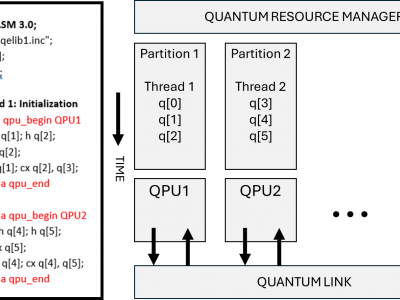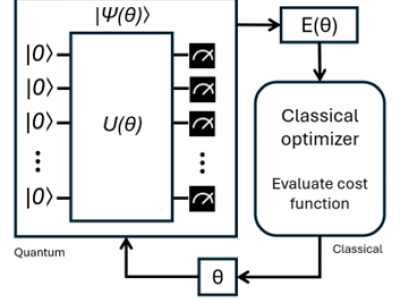plain text
Quantum computing stands at the forefront of technological innovation, promising to revolutionize fields ranging from cryptography to material science by leveraging the unique properties of quantum mechanics. Central to the advancement of quantum computing is the development of efficient and scalable quantum circuits, which serve as the fundamental building blocks for quantum algorithms. Traditional static quantum circuits, while powerful, often face limitations in flexibility and efficiency, particularly as the complexity of quantum algorithms increases.
- Categories:
 83 Views
83 ViewsAs quantum computing advances, there is a growing need for sophisticated computational methods that efficiently leverage quantum resources. This paper investigates the integration of adaptive quantum circuits with the Variational Quantum Eigensolver (VQE) algorithm, proposing Adaptive VQE as an enhanced approach for dynamically constructing quantum ansätze.
- Categories:
 190 Views
190 ViewsQuantum computing holds the promise of revolutionizing the way we solve complex problems by harnessing the principles of quantum mechanics. However, current noisy intermediate-scale quantum (NISQ) computers face significant limitations due to their small number of qubits and high error rates, making it challenging to execute large quantum circuits that require greater depth, size, or width.
- Categories:
 97 Views
97 Views
This dataport will be useful to those interested in visual design for complex physics phenomena. We have included two quantum physics data sample datasets and our empirical study results.
(1) evaluation results from two experiments (20 participants in each and 40 in total) to empirically validate that separable bivariate pairs of large-magnitude-range vector
magnitude representations are more efficient than integral pairs.
- Categories:
 127 Views
127 Views
The dataset includes three files collected from the the CAN bus of a moving vehicle. They are:
1- CAN log with no injection of fabricated messages
2- CAN log with injection of fabricated RPM reading messages
3- CAN log with injection of fabricated speed reading messages
The description of the data collection process is available in this paper:
- Categories:
 1097 Views
1097 Views
The dataset includes three files collected from the the CAN bus of a moving vehicle. They are:
1- CAN log with no injection of fabricated messages
2- CAN log with injection of fabricated RPM reading messages
3- CAN log with injection of fabricated speed reading messages
The description of the data collection process is available in this paper:
- Categories:
 Views
Views
This is a simple batch of data sets of points containing only integer attributes. The data sets were generated with a randomly correlated data set generator (DOI: 10.13140/RG.2.2.34866.43200).
This batch includes a total of 12 data sets which can be used to validate implementations of clustering algorithms such as k-nearest neighbours, or k-means.
- Categories:
 561 Views
561 Views


